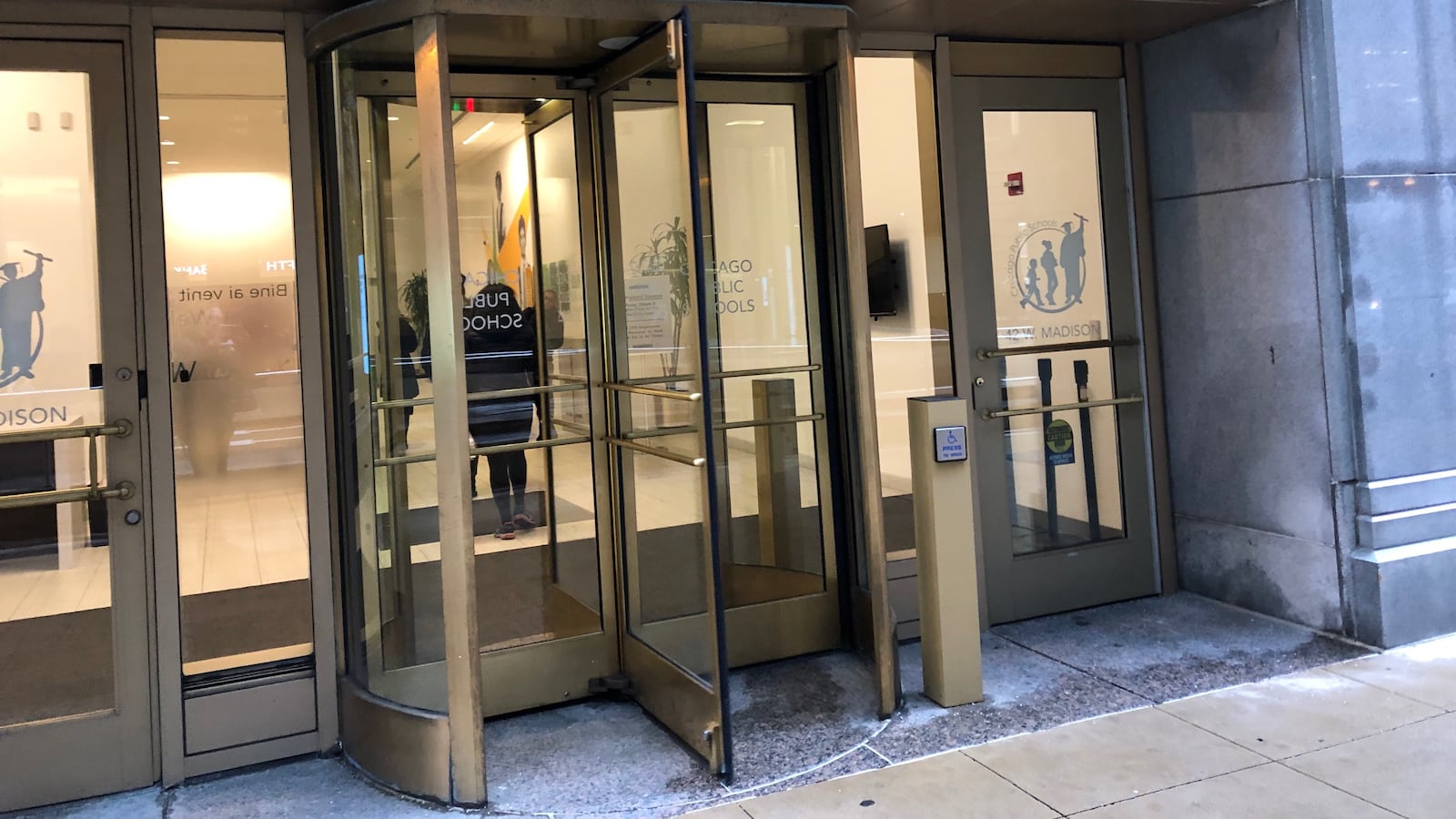Taking aim at uneven curriculum quality across the district, Chicago will bring local teachers and national education companies together to create instructional materials for all subjects and all grades.
The city is asking the school board to approve $135 million in contracts to four vendors with experience creating curriculum. Through what the district is calling the “Curriculum Equity Initiative,” the companies will work with local officials and educators over two years to create materials that are challenging and sensitive to the varied needs of Chicago students.
This will be the first time the district offers a central repository for curriculum of all levels, which previously was left up to teachers and principals at individual schools to develop. The effort will begin this fall, when the district plans to launch an online curriculum library so local teachers searching for lesson plans will have options their district has endorsed. By 2021, teachers should be able to access and customize curriculums and source materials for a range of subjects.
Teachers won’t be required to use the new curriculums, but education officials say they expect wide adoption nonetheless.
“We’re not going to make it mandatory, because we don’t have to,” said LaTanya McDade, Chicago Public Schools’ chief academic officer. “Anything that is high quality, people are going to want to use for the kids.”
The initiative comes as curriculum quality is receiving renewed attention across the country. Most states — including Illinois — overhauled their learning standards, or expectations of what students should learn in each grade, as part of a national push nearly a decade ago. But the process of getting teachers blueprints for how to teach those standards has been uneven.
A few states created new curriculum materials early on. Other states left the process up to districts; some bought new textbooks — though not all would prove to have truly changed — and others adopted new online or open-source materials. And some districts passed decision-making on to individual principals, who in turn sometimes handed the responsibility for figuring out what to teach to individual teachers.
That’s what has happened in Chicago, where principals — guided by their network leaders — have wide autonomy to set their schools’ curriculums. That arrangement is driven by the theory that school leaders know best what their students need, but district officials say the autonomy has come at a cost. A district survey found that fewer than half of teachers on the South and West sides of the city, home to the city’s most struggling schools, said they had been given curriculum materials for the subjects they teach, according to McDade.
Seeing similar dynamics in other cities, several advocacy groups have begun pushing for curriculum overhauls, including Chiefs for Change, a coalition of reform-oriented district leaders that McDade and Chicago Public Schools CEO Janice Jackson have joined. That group recommends a road map for curriculum change that Chicago appears to be following, and its CEO cheered the city’s announcement Friday, saying the city is following in the footsteps of other states and districts where educators have adopted high-quality curriculums.
“Chicago, with its scale and capacity and the extraordinary leadership of CEO Janice Jackson, has an opportunity to do similar work and produce an excellent curriculum that will benefit all students,” Chiefs for Change CEO Mike Magee said in a statement.
Chicago’s initiative comes at an uncertain moment for the city’s schools. The $130 million in contracts are on the agenda for Wednesday’s school board meeting — but on Monday the city will get a new mayor with the authority to change the board’s composition and the school district’s priorities. Mayor-elect Lori Lightfoot has called for broadening access to culturally relevant curriculum and changing the way the city funds schools.
It’s clear that many local educators would welcome help in deciding how to deliver instruction.
Syed Ahmed, a fourth- and fifth-grade teacher at Carl Von Linne school in Avondale, said he spends at least 250 hours a year looking for curriculum materials — an amount of time the district says is average.
“100 percent I’ll be using it,” Ahmed said, referring to the curriculum repository. “As opposed to having to Google everything, I’ll find it at my fingertips.”
The four vendors that Chicago wants to work with are McGraw Hill, the textbook and test publisher; Amplify, a digital education company once led by former New York City schools chief Joel Klein; Public Consulting Group, which works on public education; and Vista Higher Learning, an international textbook company.
The city teachers union, which is currently negotiating a new contract with the city, is backing the intention behind the new initiative but balking at the price tag of a contract with national education companies.
“We can agree that there is inequitable supply of baseline curriculum and materials across the school district,” said Jen Johnson, chief of staff at the Chicago Teachers Union. But, she said, “creating a repository of materials doesn’t feel as pedagogically engaging as doing this work in school communities.”
Johnson said the city would be better off spending $135 million on other purposes, such as librarians for individual schools, something the union is pushing in contract talks.
But while the $135 million represents a steep upfront cost for the district, the new curriculum strategy could potentially free up school-level dollars. Right now, schools pay for their curriculum materials out of their regular budgets. The district is bearing the cost of the creating the new materials centrally, so schools that choose to use them will be able to spend money in other ways.
At the Plamondon School, on the border between Little Village and Lawndale, teachers put together curriculum before and after school, according to Principal Althea Hammond. She said she could see the new resources freeing up time for her teachers — and money for her school.
“I believe it’s going to increase some capacity,” she said. And for her school, she said, “it’s free.”

